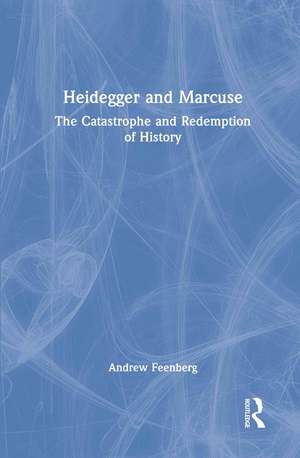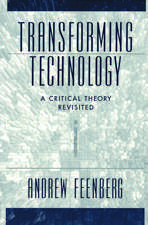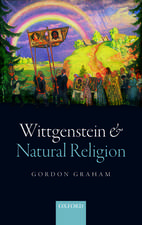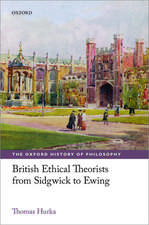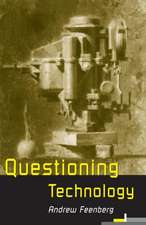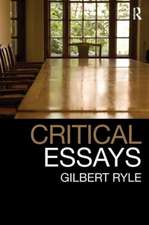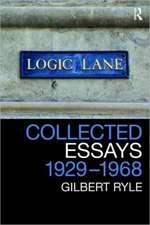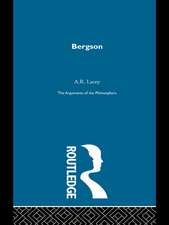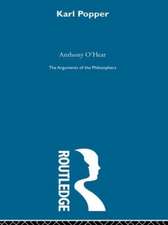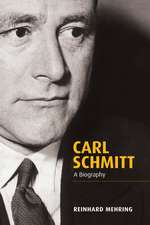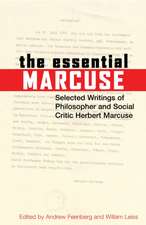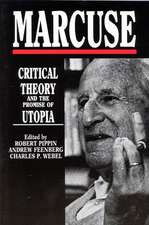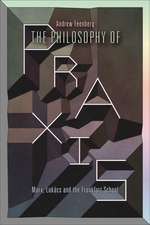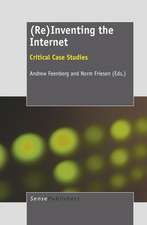Heidegger and Marcuse: The Catastrophe and Redemption of History
Autor Andrew Feenbergen Limba Engleză Hardback – 16 noi 2004
| Toate formatele și edițiile | Preț | Express |
|---|---|---|
| Paperback (1) | 363.00 lei 6-8 săpt. | |
| Taylor & Francis – 16 noi 2004 | 363.00 lei 6-8 săpt. | |
| Hardback (1) | 998.71 lei 6-8 săpt. | |
| Taylor & Francis – 16 noi 2004 | 998.71 lei 6-8 săpt. |
Preț: 998.71 lei
Preț vechi: 1217.94 lei
-18% Nou
Puncte Express: 1498
Preț estimativ în valută:
191.13€ • 198.80$ • 157.79£
191.13€ • 198.80$ • 157.79£
Carte tipărită la comandă
Livrare economică 15-29 aprilie
Preluare comenzi: 021 569.72.76
Specificații
ISBN-13: 9780415941778
ISBN-10: 0415941776
Pagini: 174
Ilustrații: 2 b/w images
Dimensiuni: 152 x 229 x 17 mm
Greutate: 0.41 kg
Ediția:1
Editura: Taylor & Francis
Colecția Routledge
Locul publicării:Oxford, United Kingdom
ISBN-10: 0415941776
Pagini: 174
Ilustrații: 2 b/w images
Dimensiuni: 152 x 229 x 17 mm
Greutate: 0.41 kg
Ediția:1
Editura: Taylor & Francis
Colecția Routledge
Locul publicării:Oxford, United Kingdom
Recenzii
'This is a book of many virtues. It undertakes the conversation that the later Heidegger was too haughty and the mature Marcuse too disappointed to initiate. In light of this conversation, both Heidegger and Marcuse scholars will be provoked to take a deeper and more fruitful approach to these two giants of twentieth century philosophy. More important still, the book's brilliant readings of Plato, Aristotle, Heidegger, and Marcuse give new resonance to Feenberg's own work and open up new avenues for his extraordinarily circumspect and incisive social philosophy.' – Albert Borgmann, University of Montana, USA
'Feenberg's fine-grained and masterly intellectual historiography will be indispensible in further dicussions of Marcuse.' – Topia
'Feenberg's fine-grained and masterly intellectual historiography will be indispensible in further dicussions of Marcuse.' – Topia
Cuprins
Chapter 1 Techné; Chapter 2 The Question Concerning Techné; Chapter 3 The Dialectic of Life; Chapter 4 Interlude with Lukács; Chapter 5 Aesthetic Redemption; Chapter 6 The Question Concerning Nature; Chapter 7 Conclusion;
Notă biografică
Andrew Feenberg is the Canada Research Chair in Philosophy of Technology in the School of Communication at Simon Fraser University.
